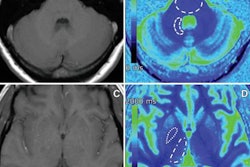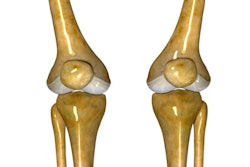Dear MRI Insider,
Does Alzheimer's disease develop differently in Caucasians and African-Americans? A group of researchers from Washington University School of Medicine put that question to the test and found both intriguing and confounding results.
While MR and PET images revealed no significant biomarker differences between the races, cerebrospinal fluid samples showed significantly lower levels of tau protein in African-Americans than in Caucasians. In addition, the researchers found that older Caucasians who carry the apolipoprotein E (APOE) ε4 allele, a genetic factor for Alzheimer's, had three times the chance of developing Alzheimer's disease. The gene variant had a much weaker effect in African-Americans, however. Today's Insider Exclusive takes an in-depth look at the somewhat divergent results and why this area of Alzheimer's research has been woefully understudied.
The issue of gadolinium retention always draws keen interest. In one recent study, German researchers mulled the possibility that significantly lower T1 relaxation times may indicate the presence of gadolinium in the brains of patients who have undergone multiple contrast-enhanced MRI scans.
Other research is raising questions about how long it takes gadolinium to exit the body after MRI scans. Using urine samples from its members, gadolinium patient advocacy group the Lighthouse Project found elevated levels of gadolinium in patients years after their scans. Although the authors do not plan to submit their study for peer review, they hope that researchers, physicians, and the U.S. Food and Drug Administration can use the study to better inform patients about the potential side effects of gadolinium contrast.
Is PET or MRI better for detecting tumor recurrence in patients with brain metastases who received radiation therapy? MRI gets the edge if advanced scanning sequences are used, according to a study from Korea. The findings are an indication of why advanced MRI is gaining popularity for detecting various forms of cancer without the risk of ionizing radiation.
For at least one healthcare system, there is plenty of room for improvement when it comes to following the American College of Radiology's (ACR) Appropriateness Criteria for the use of MRI in nontraumatic knee pain. Researchers from Emory University in Atlanta took an introspective look at their performance and found that fewer than 60% of knee MRI scans ordered by local primary care clinics were considered appropriate under ACR guidelines.
Finally, getting an MRI scan won't help you lose weight, but a specialized MR imaging sequence can be useful in determining the success of bariatric surgery in combination with a very low-calorie diet.
Stay in touch with the MRI Community on AuntMinnie.com on a regular basis for coverage of news and research developments around the globe.



.fFmgij6Hin.png?auto=compress%2Cformat&fit=crop&h=100&q=70&w=100)




.fFmgij6Hin.png?auto=compress%2Cformat&fit=crop&h=167&q=70&w=250)











